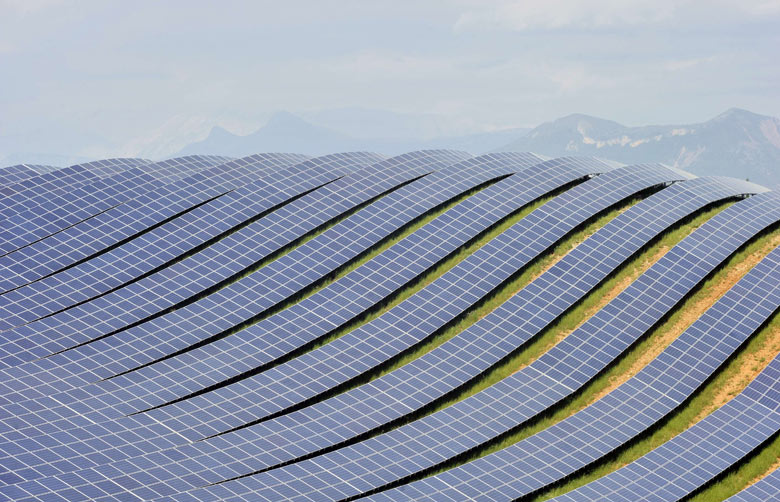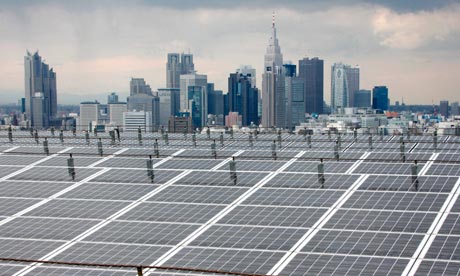But the change is real. I don’t think anybody would argue now that the Internet isn’t becoming a major factor in our lives. However, it’s very new to us. Newsreaders still feel it is worth a special and rather worrying mention if, for instance, a crime was planned by people ‘over the Internet.’ They don’t bother to mention when criminals use the telephone or the M4, or discuss their dastardly plans ‘over a cup of tea,’ though each of these was new and controversial in their day.
Then there’s the peculiar way in which certain BBC presenters and journalists (yes, Humphrys Snr., I’m looking at you) pronounce internet addresses. It goes ‘www DOT … bbc DOT… co DOT… uk SLASH… today SLASH…’ etc., and carries the implication that they have no idea what any of this new-fangled stuff is about, but that you lot out there will probably know what it means.
I suppose earlier generations had to sit through all this huffing and puffing with the invention of television, the phone, cinema, radio, the car, the bicycle, printing, the wheel and so on, but you would think we would learn the way these things work, which is this:
1) everything that’s already in the world when you’re born is just normal;
2) anything that gets invented between then and before you turn thirty is incredibly exciting and creative and with any luck you can make a career out of it;
3) anything that gets invented after you’re thirty is against the natural order of things and the beginning of the end of civilisation as we know it until it’s been around for about ten years when it gradually turns out to be alright really.
Apply this list to movies, rock music, word processors and mobile phones to work out how old you are.
This subjective view plays odd tricks on us, of course. For instance, ‘interactivity’ is one of those neologisms that Mr Humphrys likes to dangle between a pair of verbal tweezers, but the reason we suddenly need such a word is that during this century we have for the first time been dominated by non-interactive forms of entertainment: cinema, radio, recorded music and television. Before they came along all entertainment was interactive: theatre, music, sport – the performers and audience were there together, and even a respectfully silent audience exerted a powerful shaping presence on the unfolding of whatever drama they were there for. We didn’t need a special word for interactivity in the same way that we don’t (yet) need a special word for people with only one head.
I expect that history will show ‘normal’ mainstream twentieth century media to be the aberration in all this. ‘Please, miss, you mean they could only just sit there and watch? They couldn’t do anything? Didn’t everybody feel terribly isolated or alienated or ignored?’
‘Yes, child, that’s why they all went mad. Before the Restoration.’
‘What was the Restoration again, please, miss?’
‘The end of the twentieth century, child. When we started to get interactivity back.’
Because the Internet is so new we still don’t really understand what it is. We mistake it for a type of publishing or broadcasting, because that’s what we’re used to. So people complain that there’s a lot of rubbish online, or that it’s dominated by Americans, or that you can’t necessarily trust what you read on the web. Imagine trying to apply any of those criticisms to what you hear on the telephone. Of course you can’t ‘trust’ what people tell you on the web anymore than you can ‘trust’ what people tell you on megaphones, postcards or in restaurants. Working out the social politics of who you can trust and why is, quite literally, what a very large part of our brain has evolved to do. For some batty reason we turn off this natural scepticism when we see things in any medium which require a lot of work or resources to work in, or in which we can’t easily answer back – like newspapers, television or granite. Hence ‘carved in stone.’ What should concern us is not that we can’t take what we read on the internet on trust – of course you can’t, it’s just people talking – but that we ever got into the dangerous habit of believing what we read in the newspapers or saw on the TV – a mistake that no one who has met an actual journalist would ever make. One of the most important things you learn from the internet is that there is no ‘them’ out there. It’s just an awful lot of ‘us’.
Of course, there’s a great deal wrong with the Internet. For one thing, only a minute proportion of the world’s population is so far connected. I recently heard some pundit on the radio arguing that the internet would always be just another unbridgeable gulf between the rich and the poor for the following reasons – that computers would always be expensive in themselves, that you had to buy lots of extras like modems, and you had to keep upgrading your software. The list sounds impressive but doesn’t stand up to a moment’s scrutiny. The cost of powerful computers, which used to be around the level of jet aircraft, is now down amongst the colour television sets and still dropping like a stone. Modems these days are mostly built-in, and standalone models have become such cheap commodities that companies, like Hayes, whose sole business was manufacturing them are beginning to go bust.. Internet software from Microsoft or Netscape is famously free. Phone charges in the UK are still high but dropping. In the US local calls are free. In other words the cost of connection is rapidly approaching zero, and for a very simple reason: the value of the web increases with every single additional person who joins it. It’s in everybody’s interest for costs to keep dropping closer and closer to nothing until every last person on the planet is connected.
Another problem with the net is that it’s still ‘technology’, and ‘technology’, as the computer scientist Bran Ferren memorably defined it, is ‘stuff that doesn’t work yet.’ We no longer think of chairs as technology, we just think of them as chairs. But there was a time when we hadn’t worked out how many legs chairs should have, how tall they should be, and they would often ‘crash’ when we tried to use them. Before long, computers will be as trivial and plentiful as chairs (and a couple of decades or so after that, as sheets of paper or grains of sand) and we will cease to be aware of the things. In fact I’m sure we will look back on this last decade and wonder how we could ever have mistaken what we were doing with them for ‘productivity.’
But the biggest problem is that we are still the first generation of users, and for all that we may have invented the net, we still don’t really get it. In ‘The Language Instinct’, Stephen Pinker explains the generational difference between pidgin and creole languages. A pidgin language is what you get when you put together a bunch of people – typically slaves – who have already grown up with their own language but don’t know each others’. They manage to cobble together a rough and ready lingo made up of bits of each. It lets them get on with things, but has almost no grammatical structure at all.
However, the first generation of children born to the community takes these fractured lumps of language and transforms them into something new, with a rich and organic grammar and vocabulary, which is what we call a Creole. Grammar is just a natural function of children’s brains, and they apply it to whatever they find.
The same thing is happening in communication technology. Most of us are stumbling along in a kind of pidgin version of it, squinting myopically at things the size of fridges on our desks, not quite understanding where email goes, and cursing at the beeps of mobile phones. Our children, however, are doing something completely different. Risto Linturi, research fellow of the Helsinki Telephone Corporation, quoted in Wired magazine, describes the extraordinary behaviour kids in the streets of Helsinki, all carrying cellphones with messaging capabilities. They are not exchanging important business information, they’re just chattering, staying in touch. "We are herd animals," he says. "These kids are connected to their herd – they always know where it’s moving." Pervasive wireless communication, he believes will "bring us back to behaviour patterns that were natural to us and destroy behaviour patterns that were brought about by the limitations of technology."
We are natural villagers. For most of mankind’s history we have lived in very small communities in which we knew everybody and everybody knew us. But gradually there grew to be far too many of us, and our communities became too large and disparate for us to be able to feel a part of them, and our technologies were unequal to the task of drawing us together. But that is changing.
Interactivity. Many-to-many communications. Pervasive networking. These are cumbersome new terms for elements in our lives so fundamental that, before we lost them, we didn’t even know to have names for them.






 This piece, By the peerless
This piece, By the peerless 
